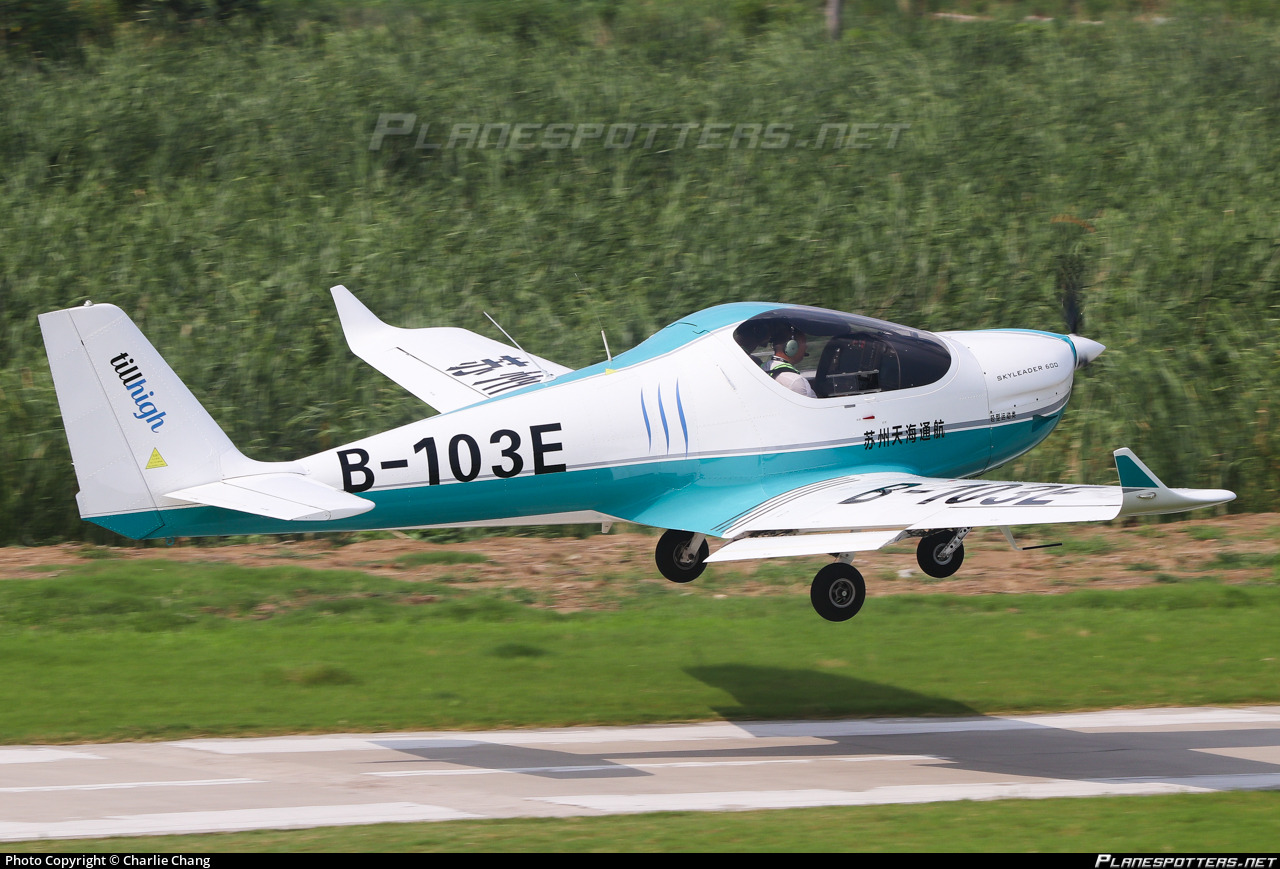Technology
Safaricom Secures Sh15B Sustainability Loan: Future of Telecom
Safaricom has long been a leader in corporate sustainability in Kenya, using the Sustainable Development Goals (SDGs) to guide its initiatives in clean energy, gender equality, decent work, and economic growth. The Sh15 billion sustainability loan will accelerate and expand these efforts, increasing their impact.

: Safaricom Secures Sh15 Billion Sustainability Loan: Paving the Way for a Greener Telecom Future in Kenya
By Charles Wachira
In its continuous drive towards sustainability and financial growth, Safaricom, Kenya’s largest telecommunications provider, has secured an additional Sh15 billion loan aimed at furthering its sustainability agenda. This is not the first time Safaricom has tapped into such financing; the telco previously received a Sh20 billion sustainability-linked loan from international lenders in 2022. This latest funding marks another step in Safaricom’s journey towards aligning its business strategy with sustainability goals while tapping into the growing demand for green investments. But what does this money intend to achieve? What kinds of clients are targeted, and how will this affect the telco’s operations and the broader business landscape?
The Sustainability Loan: What It Entails
Sustainability loans are financial instruments that provide companies with capital to pursue projects aimed at creating positive social, environmental, or economic impacts. The conditions for these loans typically include performance metrics related to sustainability, such as reducing carbon emissions, promoting social inclusion, or implementing renewable energy initiatives. If the borrowing company achieves or exceeds these targets, it may benefit from reduced interest rates or other financial incentives.
For Safaricom, this Sh15 billion loan is intended to fund a variety of initiatives that will solidify the company’s role as a socially responsible corporate entity while boosting its competitive edge in Kenya’s fast-evolving telecom industry. According to Safaricom, the funds will be directed toward projects aimed at reducing the company’s carbon footprint, improving energy efficiency, expanding digital inclusion, and fostering socioeconomic development in under-served areas.
A Commitment to Sustainability
Safaricom has been leading the way in corporate sustainability in Kenya for years. It has adopted the Sustainable Development Goals (SDGs) as a framework for its corporate social responsibility initiatives, focusing on areas such as affordable and clean energy, gender equality, decent work, and economic growth. With the additional Sh15 billion sustainability loan, Safaricom aims to accelerate its existing programs, making them more impactful and far-reaching.
One of the major areas Safaricom is likely to focus on is the transition to renewable energy. The company has already committed to achieving net-zero carbon emissions by 2050, and this loan will help finance the installation of solar panels at its base stations across the country, reducing its reliance on fossil fuels. By switching to renewable energy sources, Safaricom aims to cut its operational costs while contributing to Kenya’s national goal of reducing greenhouse gas emissions.
Additionally, the loan will enable Safaricom to improve energy efficiency in its data centers, which are the backbone of its digital services. Modernizing these facilities will reduce energy consumption, thus lowering operational expenses and enhancing environmental sustainability.
Targeting Underserved Communities
While environmental sustainability is a key focus of the loan, Safaricom is also committed to promoting digital inclusion, especially in rural and marginalized areas of Kenya. These regions often suffer from limited or non-existent access to reliable telecommunications and internet services, further widening the digital divide.
By using the funds to expand its 4G and 5G network infrastructure into underserved areas, Safaricom aims to bring high-speed internet connectivity to millions of Kenyans who are currently unconnected or under-connected. This initiative will enable more people to access digital services, including mobile money, online education, e-commerce, and telemedicine. In turn, this will spur economic growth in these regions by allowing small businesses to participate in the digital economy and providing local communities with access to essential services.
In fact, Safaricom’s M-Pesa platform has been a lifeline for many Kenyans, and expanding internet coverage will open new opportunities for even more people to utilize the platform for banking, savings, loans, and payments. With the additional loan, Safaricom plans to extend M-Pesa services to underbanked populations, increasing financial inclusion across Kenya. This aligns with the telco’s vision of transforming lives by providing tools that can boost the economic empowerment of individuals, particularly in low-income areas.
Targeting Key Client Segments
Safaricom is Kenya’s leading telecommunications provider, boasting over 42 million subscribers as of 2024. While it continues to serve a broad spectrum of individual consumers, the telco is also increasingly focusing on corporate and business clients, especially in the small and medium-sized enterprise (SME) segment.
The company’s Safaricom Business division is expected to be a major beneficiary of the additional sustainability loan. By targeting SMEs, Safaricom aims to offer tailored solutions that address the unique challenges faced by this sector, including digital transformation, connectivity, and financial services. The funds will be used to develop products that support the digitization of SMEs, enabling them to integrate e-commerce platforms, manage digital payments, and utilize cloud services for operational efficiency.
Another key client segment Safaricom will likely focus on is large corporations and government institutions. By providing advanced solutions in Internet of Things (IoT), cloud computing, and cybersecurity, Safaricom is positioning itself as a strategic partner for businesses looking to enhance their digital capabilities. The sustainability loan will help the company invest in these technologies, ensuring it stays ahead of competitors in delivering comprehensive digital solutions to enterprise clients.
A Sustainable Future for the Telecom Industry
The telecom industry is one of the fastest-growing sectors in Kenya, driven by increasing demand for mobile services, internet connectivity, and digital platforms. As competition intensifies with the entry of new players like Airtel, Telkom Kenya, and international firms like Google (through its Loon project), Safaricom needs to innovate continuously to maintain its leadership position.
The additional Sh15 billion loan will play a crucial role in ensuring Safaricom remains competitive in this rapidly evolving landscape. It will not only fund the expansion of network infrastructure but also support the company’s transition to a more sustainable business model, which is critical as global pressure mounts on companies to adopt environmentally friendly practices.
Safaricom’s focus on sustainability could also enhance its appeal to environmental, social, and governance (ESG)-conscious investors. With the global shift towards sustainable investments, companies that demonstrate strong ESG performance are increasingly attractive to institutional investors and funds. By securing this loan and committing to sustainability, Safaricom is likely to attract more green financing opportunities, which could further bolster its growth.
Why Safaricom’s Strategy is Good for Kenya’s Economy
Safaricom’s efforts to align its business model with sustainability goals are not only good for the environment but also for the Kenyan economy. As one of the country’s largest companies, Safaricom plays a pivotal role in driving economic growth. The expansion of its network infrastructure will create jobs in both the construction and telecommunications sectors, boosting local economies in underserved areas.
Furthermore, Safaricom’s focus on digital inclusion aligns with Kenya’s broader Vision 2030 development agenda, which aims to transform the country into a middle-income economy through technological innovation and inclusive growth. By providing affordable digital services to rural and marginalized communities, Safaricom is helping to bridge the digital divide, enabling more people to participate in the modern economy.
The Investment Climate in Kenya’s Telecom Sector
Kenya remains an attractive destination for telecom investment, offering several advantages that set it apart from other markets in the region:
- High Mobile Penetration: Kenya has one of the highest mobile penetration rates in Africa, with over 59 million mobile subscriptions. This provides a strong foundation for telecom companies to grow and expand their services.
- Technological Adoption: The Kenyan population has a high level of digital adoption, with millions of people using mobile money, internet services, and digital platforms for daily transactions. Safaricom’s success with M-Pesa is a testament to the country’s willingness to embrace new technologies.
- Stable Regulatory Environment: Kenya’s telecom sector is governed by clear regulations, which provide a stable business environment for investors. The Communications Authority of Kenya has created a level playing field for both local and foreign telecom operators, encouraging competition and innovation.
- Government Support for Innovation: The Kenyan government is committed to supporting the growth of the digital economy, offering incentives for investments in ICT infrastructure and encouraging private sector participation in national development goals. Initiatives like the Konza Technopolis project highlight the government’s vision for a technology-driven future.
- Growing Middle Class: Kenya’s expanding middle class presents a significant opportunity for telecom companies, as more consumers seek advanced digital services and higher-quality mobile experiences.
Conclusion: Safaricom’s Sh15 Billion Sustainability Loan—A Win for Business and Society
Safaricom’s additional Sh15 billion sustainability loan is not just a financial boost; it represents a commitment to creating a sustainable and inclusive future for Kenya’s telecommunications sector. By focusing on reducing its carbon footprint, expanding digital access to underserved communities, and driving digital transformation for SMEs, Safaricom is positioning itself as a leader in both business innovation and corporate responsibility.
As Safaricom continues to invest in sustainability, it sets a powerful example for other businesses in Kenya and across the region, proving that profitability and social responsibility can go hand in hand. For investors, Safaricom’s forward-looking strategy presents a compelling case for long-term growth in a rapidly evolving telecom landscape. The future looks bright, not just for Safaricom, but for the millions of Kenyans who stand to benefit from its sustainable business model.
Keywords:Safaricom sustainability loan:Kenya telecom green financing:Digital inclusion in rural Kenya:Safaricom renewable energy projects:SME digital transformation Kenya
Technology
Kenya & Mauritius Lead East Africa’s Cybercrime Battle

: Kenya and Mauritius face rising DDoS attacks, topping East Africa. Discover
what drives these threats and how nations are fortifying defences.
Kenya and Mauritius are increasingly becoming hotspots for cybercrime in East Africa,
according to the recently released NETSCOUT 1H2024 DDoS Threat Intelligence
Report (TIR).
Both countries recorded the highest volumes of Distributed Denial-of-Service (DDoS)
attacks in the region, with cybercriminals deploying increasingly sophisticated, multi-
vector techniques to disrupt services.
DDoS SURGE IN KENYA AND MAURITIUS
Bryan Hamman, Regional Director for Africa at NETSCOUT, emphasised the growing
threat.
“Kenya and Mauritius are bearing the brunt of DDoS attacks in East Africa. Attackers
are not only increasing the volume but also leveraging multi-vector approaches that
make detection and mitigation far more challenging,” Hamman explained.
In Kenya, where the tech ecosystem thrives on innovations such as M-Pesa and
expansive mobile banking services, the Communications Authority of Kenya (CA)
reported a 12% increase in cyberattacks in the first half of 2024, translating to 459
million incidents.
Similarly, Mauritius, recognised as a financial hub, saw a sharp rise in attacks on its
financial services sector, a key contributor to its GDP.
WHAT DRIVES THE TARGETTING OF KENYA AND MAURITIUS?
Technological Advancement:
Both nations are at the forefront of digital transformation in East Africa, which,
while driving economic growth, also exposes vulnerabilities. Hamman noted,
“The more interconnected these economies become, the larger the attack
surface for cybercriminals.”
Economic Significance:
Kenya’s dominance as a regional tech hub and Mauritius’s role in global financial
services make them prime targets for malicious actors seeking to exploit high-
value systems.
Insufficient Cybersecurity Infrastructure:
Despite advancements, gaps in cybersecurity frameworks persist. For instance,
Kenya’s Data Protection Act of 2019 and Mauritius’s cybersecurity strategy have
struggled to keep pace with the sophistication of modern cyber threats.
COMPARISON WITHIN EAST AFRICA
While Kenya and Mauritius grapple with these challenges, regional peers like Rwanda
and Tanzania have demonstrated resilience.
- ● Rwanda: Known for its proactive measures, such as the National Cyber Security
- Authority (NCSA), Rwanda has kept DDoS incidents relatively low. In the first half
- of 2024, the country reported only 36 million attacks.
- ● Tanzania: With the establishment of its Computer Emergency Response Team
- (CERT) in 2020, Tanzania has reduced phishing and ransomware incidents by
- 35% and 20%, respectively.
IMPACT OF CYBERCRIME

The repercussions are severe, affecting sectors critical to economic stability:
● Kenya: The banking and telecommunications sectors, central to the country’s
GDP, have faced significant disruptions. Safaricom reported a two-hour outage in
April 2024 linked to a DDoS attack, costing millions in lost revenue.
● Mauritius: The financial services industry has suffered data breaches and
operational downtimes, undermining investor confidence.
RECOMMENDATIONS FOR ACTION
Enhanced Cybersecurity Policies:
Governments must update regulations to reflect evolving threats. Public-private
partnerships can also drive innovation in defence mechanisms.
Regional Collaboration:
Establishing an East African Cyber Defense Alliance could enable nations to
share threat intelligence and resources.
Investment in Education and Awareness:
Cyber hygiene training for individuals and businesses can help minimize
vulnerabilities, particularly against phishing attacks and social engineering
tactics.
Adoption of Advanced Technologies:
Leveraging tools like AI-driven threat detection can provide real-time responses
to attacks.
CONCLUSION
As cybercriminals grow bolder and more sophisticated, Kenya and Mauritius must
accelerate efforts to fortify their defences. “A regional approach that blends technology,
policy, and awareness is key to turning the tide against these threats,” Hamman
concluded.
The path forward is clear: a united East African front, coupled with robust internal
reforms, can transform the region from a target to a cybersecurity stronghold.
Technology
MTN Uganda Reports 29.6% Profit Rise to Shs 459.4bn in 2024
MTN Uganda’s revenue from mobile data and MoMo services jumped over 20% year-on-year, driven by growing demand for digital financial solutions and a strong focus on expanding MoMo’s reach.

: MTN Uganda’s profit climbs by 29.6% to Shs 459.4bn for 2024’s first nine months, driven by digital growth, fintech, and network expansion strategies.
MTN Uganda reported a 29.6% increase in profit after tax, reaching Shs 459.4 billion for the first nine months of the year, compared to Shs 354.5 billion during the same period in 2023.
This growth reflects the telecom giant’s strategic focus on expanding digital services and enhancing network coverage to capture more market share in Uganda’s competitive telecommunications sector.
CEO Cites Strategic Expansion and Digital Focus
Chief Executive Officer Sylvia Mulinge attributed the profit jump to effective cost management and a strong emphasis on digital transformation.
“Our increased investment in infrastructure and focus on digital financial services continue to yield positive results, as seen in this remarkable growth,” she stated during the earnings release.
Fintech and Data Services Lead Revenue Growth
Mobile data and MTN Mobile Money (MoMo) services played a significant role, as revenue from these segments has grown by over 20% year-on-year.
With Uganda’s demand for digital financial solutions rapidly increasing, MTN Uganda’s focus on expanding MoMo has led to a substantial boost in customer uptake, contributing to a large portion of this year’s growth.
Investments in Network Infrastructure Pay Off
MTN Uganda’s ongoing investments in 4G and 5G network infrastructure have also proven profitable.
In 2024, the company increased its capital expenditure to Shs 200 billion, up from Shs 160 billion in 2023, to meet the growing demand for faster and more reliable internet. “MTN Uganda has successfully captured the increased demand for reliable and faster internet,” said Henry Tumusiime, a telecom analyst based in Kampala. “Their proactive approach to enhancing data service capabilities has kept them ahead, especially as the economy becomes more digitised.”
Youth-Focused Campaigns Expand Subscriber Base
MTN’s early 2024 campaign aimed at youth — offering affordable data bundles and free educational content — attracted over 500,000 new users, expanding its subscriber base to 17 million, up from 16.5 million in 2023. This campaign has been instrumental in further driving revenue growth.
Outlook: Commitment to Quality and Digital Inclusion
Looking forward, MTN Uganda remains focused on delivering high-quality, affordable services to enhance digital inclusion. “As we approach year-end, our strategy remains anchored on delivering quality service, ensuring affordability, and growing digital inclusion,” Mulinge added.
MTN Uganda’s performance aligns with MTN Group’s broader strategy to connect Africa and strengthen digital finance solutions across the continent.
Technology
Skyleader 600 Launch in Tanzania: Boosting Local Aircraft Manufacturing
The Skyleader 600 marks a pivotal moment for Tanzania, not only in aviation but in its broader industrial aspirations.
With its maiden landing at Julius Nyerere International Airport, the aircraft stands as a symbol of Tanzania’s growing capacity to innovate, manufacture, and compete on the global stage.

Discover Tanzania’s aviation breakthrough with the Skyleader 600, the first locally manufactured ultralight aircraft, unveiled at TIMEXPO 2024 in Dar es Salaam
By Charles Wachira
In a groundbreaking achievement for Tanzania and Africa’s aviation sector, AIRPLANE Africa Limited (AAL), based in Morogoro, launched the Skyleader 600, marking the first ultralight aircraft manufactured in the country.
The official unveiling took place at TIMEXPO 2024 in October 2024, setting a new milestone for local manufacturing and economic potential.
The Skyleader 600: A Game-Changer in African Aviation Designed with business travelers in mind, the Skyleader 600 can carry two passengers, offering a cost-effective alternative for long-distance travel.
The aircraft is praised for its modern design, affordability, and low maintenance costs.
Powered by petrol fuel, it addresses the growing demand for accessible and efficient transportation across Tanzania and the wider African market.
AAL’s Director, David Grolig, proudly remarked at the launch, “This is a historic moment not just for AIRPLANE Africa Limited, but for Tanzania. We have built something that will change the way people travel in this country and beyond.”
His statement reflects the company’s larger vision to transform Tanzania into a key player in ultralight aircraft manufacturing in Africa.
From Morogoro to the Skies: AAL’s Journey The journey to the Skyleader 600 began in 2019, when AIRPLANE Africa Limited was established in Morogoro.
The company blended local Tanzanian expertise with Czech aviation technology, a country renowned for its ultralight aircraft production.
This strategic collaboration has fostered a new generation of Tanzanian aviation professionals, thanks to internships and training programs designed to enhance skills and create jobs.
“The partnership with Czech aviation experts was crucial,” said Grolig. “It’s a blend of global expertise and local ambition. We’re showing that when we work together, we can achieve remarkable things.”
This combination has allowed AAL to tailor the Skyleader 600 to meet the unique needs of Africa’s business and private aviation sectors.
TIMEXPO 2024: Showcasing Tanzanian Innovation The TIMEXPO 2024 trade fair in Dar es Salaam served as the launch platform for the Skyleader 600.
This event, which highlights Tanzanian manufacturing, drew attention from global exhibitors and dignitaries.
The Minister for Industry and Trade was in attendance, noting the significance of AAL’s achievement: “This is a symbol of what we can achieve when we invest in our local industries. The government is committed to supporting such initiatives as they create jobs, foster innovation, and help us become more self-reliant.”
The launch has bolstered Tanzania’s image as a country capable of innovation, especially in high-tech sectors like aviation.
The Skyleader 600 is expected to open new economic opportunities in tourism, pilot training, and aircraft maintenance services.
Government Support and Economic Impact The Tanzanian government’s collaboration with AIRPLANE Africa Limited and its European partners has been key to the success of the Skyleader 600.
Support from regulatory authorities and the provision of trade incentives reflect the government’s commitment to fostering local industries that reduce reliance on imports.
Grolig acknowledged the government’s role, stating, “We couldn’t have done this without their backing. The government’s support has been essential in moving from concept to reality.”
This partnership is a model for public-private collaboration, particularly in industries like aviation that require significant investment and expertise.
Economic Potential and Future Growth The Skyleader 600’s production is expected to create ripple effects across Tanzania’s economy, from aviation services to job creation.
It provides an affordable transportation solution, not only for Tanzania but also for neighboring African markets.
AAL has ambitious plans to commercially sell the Skyleader 600, with Grolig hinting at future developments: “This is just the start. We plan to expand production, develop new models, and make Tanzania a leader in ultralight aircraft manufacturing in Africa.”
A Vision for the Future The Skyleader 600 represents a turning point for Tanzania, not just in aviation but in its broader industrial ambitions.
As the aircraft begins operations after its maiden landing at Julius Nyerere International Airport, it symbolizes Tanzania’s potential to innovate, manufacture, and compete on the global stage.
In a world where aviation is dominated by Western and Asian manufacturers, Tanzania, through AIRPLANE Africa Limited, is making its mark with the Skyleader 600—an ultralight aircraft that carries the hopes of a nation into the skies. Keywords: Skyleader 600 launch Tanzania ultralight aircraft manufacturing in Africa AIRPLANE Africa Limited TIMEXPO 2024 aviation showcase Tanzanian aviation industry growth
Keywords:Skyleader 600 launch Tanzania:Ultralight aircraft manufacturing in Africa: AIRPLANE Africa Limited:TIMEXPO 2024 aviation showcase:Tanzanian aviation industry growth
-

 Politics5 months ago
Politics5 months agoFred Okengo Matiang’i vs. President William Ruto: A 2027 Election Showdown
-

 Business & Money10 months ago
Business & Money10 months agoEquity Group Announces Kshs 15.1 Billion Dividend Amid Strong Performance
-

 Politics4 months ago
Politics4 months agoIchung’wah Faces Mt. Kenya Backlash Over Gachagua Impeachment Support
-

 Politics6 months ago
Politics6 months agoPresident Ruto’s Bold Cabinet Dismissal Sparks Hope for Change
-

 Politics7 months ago
Politics7 months agoPresident Ruto’s Lavish Spending Amid Kenya’s Economic Struggles Sparks Outrage
-

 Politics6 months ago
Politics6 months agoJohn Mbadi Takes Over Kenya’s Treasury: Challenges Ahead
-

 Business & Money2 months ago
Business & Money2 months agoMeet Kariuki Ngari: Standard Chartered Bank’s new CEO of Africa. What’s Next?
-

 Politics7 months ago
Politics7 months agoKenya Grapples with Investor Confidence Crisis Amid Tax Protest Fallout





